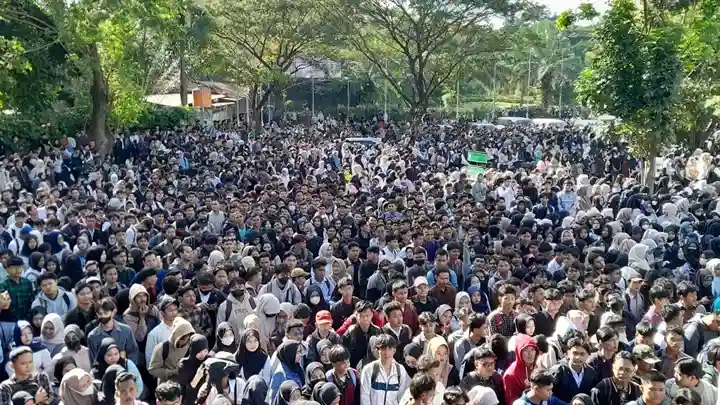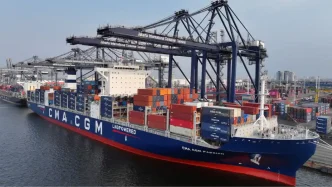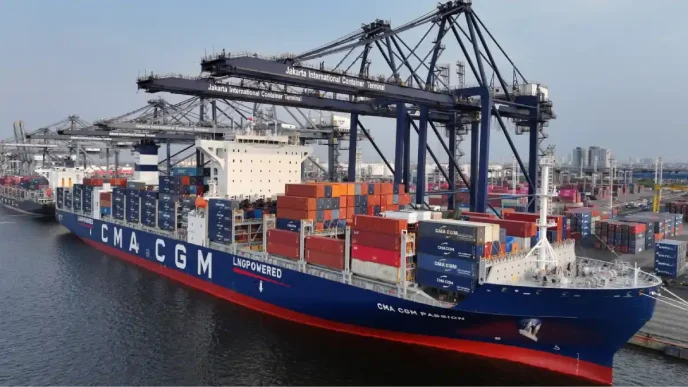As Indonesia grapples with a wave of layoffs across key industries, employers are sounding the alarm, pressing the government for urgent measures to stem job losses and enhance the nation’s economic competitiveness. With thousands of workers facing uncertainty, industry leaders warn that without swift policy interventions, the country risks falling behind its regional peers in attracting investment and sustaining growth.
Escalating Layoffs Threaten Livelihoods
The Indonesian economy, Southeast Asia’s largest, is at a critical juncture. Recent reports indicate a surge in layoffs, particularly in labor-intensive sectors like manufacturing and textiles, which have long been pillars of the nation’s industrial base. Employers attribute these job cuts to a combination of rising operational costs, declining export demand, and structural inefficiencies that hinder productivity. The impact is palpable in industrial hubs like Jakarta and Surabaya, where workers and their families face mounting financial strain.
The Indonesian Employers Association (Apindo), a prominent voice for businesses, has highlighted the scale of the crisis. According to the association, the current economic climate has forced many companies to downsize or shutter operations entirely. Small and medium enterprises (SMEs), which employ a significant portion of the workforce, are particularly vulnerable, lacking the financial buffers to weather prolonged downturns.
Beyond immediate job losses, the ripple effects are felt across communities. Reduced household incomes translate to lower consumer spending, further dampening economic activity. For a nation striving to maintain its position as a regional economic powerhouse, the stakes could not be higher.
Competitiveness Under Threat
At the heart of the crisis lies a deeper concern: Indonesia’s declining competitiveness. Industry leaders argue that the country is losing ground to neighbors like Vietnam and Thailand, where lower production costs, streamlined regulations, and robust infrastructure have lured foreign investors. In contrast, Indonesian businesses face bureaucratic hurdles, high logistics costs, and inconsistent policy frameworks that stifle growth.
Apindo has pointed to specific challenges, including rigid labor laws that discourage hiring and a tax system that burdens companies already struggling to stay afloat. Without reforms to address these issues, employers warn that Indonesia risks becoming a less attractive destination for both domestic and international investment. The consequences could be long-lasting, with potential declines in foreign direct investment (FDI) and slower industrial expansion.
Moreover, global economic headwinds exacerbate the situation. With major markets like the United States and Europe tightening budgets amid inflationary pressures, demand for Indonesian exports has waned. This external squeeze, combined with internal inefficiencies, creates a perfect storm for businesses already on edge.
Calls for Government Intervention
In response to mounting pressure, employers are urging the Indonesian government to act decisively. Apindo has proposed a multi-pronged approach, starting with short-term relief measures to prevent further layoffs. These include subsidies for struggling industries, tax breaks for SMEs, and temporary waivers on certain regulatory requirements to ease the burden on businesses.
Longer-term, the association advocates for structural reforms to enhance competitiveness. Streamlining bureaucratic processes, investing in infrastructure, and revising labor policies to balance worker protections with business flexibility are among the key recommendations. Employers also emphasize the need for targeted training programs to upskill workers, ensuring they remain relevant in an evolving economic landscape.
The government, for its part, has acknowledged the challenges. Officials have signaled a willingness to engage with industry stakeholders to address the crisis, though concrete action plans remain forthcoming. Previous initiatives, such as the 2020 Omnibus Law on Job Creation, aimed to simplify regulations and attract investment, but critics argue that implementation has been uneven, with limited tangible benefits for businesses or workers.
Balancing Worker Rights and Economic Needs
The push for labor reforms is a contentious issue in Indonesia, where worker protections are deeply enshrined in law and culture. Trade unions and labor advocates caution against measures that could erode hard-won rights, such as severance pay and minimum wage guarantees. They argue that any policy changes must prioritize the welfare of workers, many of whom are already grappling with precarious employment conditions.
Employers, however, contend that overly rigid regulations deter investment and limit job creation in the long run. Finding a middle ground will be crucial for policymakers, who must navigate the delicate balance between supporting businesses and safeguarding livelihoods. Without careful calibration, reforms risk alienating either workers or investors—or both.
Regional Context and Lessons
Indonesia’s struggles are not unique in Southeast Asia, a region characterized by fierce competition for economic dominance. Vietnam, for instance, has emerged as a manufacturing hub, thanks in part to its investor-friendly policies and lower labor costs. Similarly, Thailand has bolstered its automotive and electronics sectors through strategic government incentives and infrastructure investments.
These examples offer potential lessons for Indonesia. By studying regional success stories, policymakers could identify best practices to adapt to local conditions. For instance, Vietnam’s focus on export-oriented industries has driven growth, while Thailand’s emphasis on public-private partnerships has modernized key sectors. Indonesia, with its vast population and resource base, has unique advantages to leverage—if it can address systemic bottlenecks.
Economic and Social Implications
The broader implications of Indonesia’s employment crisis extend beyond economics. Rising unemployment could fuel social unrest, particularly in urban centers where job losses are most acute. Political stability, a cornerstone of Indonesia’s post-1998 democratic transition, may also come under strain if public discontent grows. The government faces the dual challenge of addressing immediate economic pain while maintaining social cohesion.
Furthermore, the crisis underscores the urgency of diversifying Indonesia’s economy. Heavy reliance on traditional sectors like manufacturing and commodities leaves the country vulnerable to global market fluctuations. Investments in technology, renewable energy, and the digital economy could create new job opportunities and reduce dependence on volatile industries.
Looking Ahead
As Indonesia confronts this pivotal moment, the path forward remains uncertain. Employers are clear in their demands for government support, but the complexity of the issues—ranging from labor laws to global trade dynamics—defies easy solutions. The coming months will test the administration’s ability to deliver reforms that satisfy both businesses and workers, all while positioning Indonesia as a competitive player on the global stage.
For now, thousands of workers and their families wait anxiously for relief. Whether through subsidies, policy overhauls, or innovative training programs, the government’s response will shape not only the economy but also the social fabric of the nation. As discussions between stakeholders intensify, one question looms large: can Indonesia turn this crisis into an opportunity for lasting transformation?
















